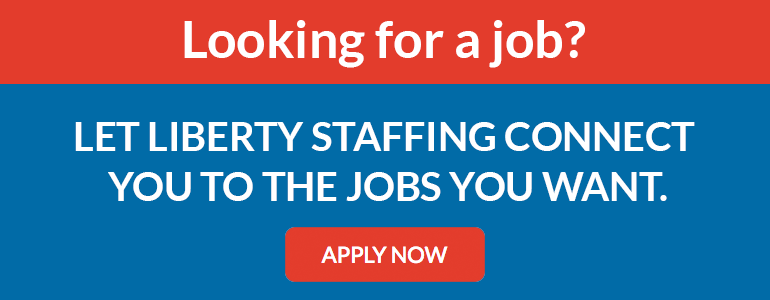.png?width=300&name=My%20Post%20(4).png) Email is a way of life for most businesses today. Whether you’re sending a job application to the hiring manager, or updating a colleague on a project, you’ll be writing an email or two.
Email is a way of life for most businesses today. Whether you’re sending a job application to the hiring manager, or updating a colleague on a project, you’ll be writing an email or two.
This form of communication comes with many challenges. Should you include that smiley emoji to ensure your colleague knows you’re joking? Email etiquette can be difficult to nail down.
At Liberty Staffing, we want you to succeed professionally. We would like to provide you with some email etiquette tips. Use these five best practices to keep your correspondence professional.
1. Email Etiquette Borrows from Business Letter Writing
The first best practice to adopt when writing an email to your colleagues or boss, or a hiring manager, is that you need to treat the task professionally. You should almost always think of writing an email as preparing a business letter.
That means employing proper grammar and spelling. Use capital letters as appropriate, but stay away from the caps-lock button. Use full sentences, and end them with periods
While not every email you write during your course of employment will be serious or formal in tone, keep it professional. You might be tempted to use sarcasm when you message your friends, but that’s not a good idea in the workplace, even with a winking emoji. You run the risk of offending someone or having them take your note literally and then executing the wrong task.
2. Keep It Short
You may think you know all about brevity from Twitter’s maximum character count, but you might still feel compelled to write a long winded email explaining a complex situation. In most cases, keep your emails short.
No one likes to be faced with a wall of text. The recipient may not read a long email all the way through, or may find it unclear or confusing. Keep your note brief and to the point. If something requires more explanation, ask for a face-to-face meeting or a phone call. This tactic will also save you time, since it can be faster to hash out an issue over the phone than to write a page long email.
3. Use Clear Subject Lines
You should always include a subject line in your email. Be sure the subject line is clear and to the point. A vague subject line can confuse the recipient. They might not open your email because they don’t think it’s important.
This is an especially vital point for job seekers, as most employers include specific instructions for applying by email. You may be asked to send your application to a particular email address with a unique subject line.
4. Include Your Signature
You might think email etiquette would dictate leaving off your signature, especially among colleagues, but it’s a good idea to include it in almost every email you write. Your signature should include your contact information, which makes it easy for someone to pick up the phone and ask you a question.
Job seekers may feel silly including a signature, especially since they don’t have a title to include, but it’s even more important for them. Since the signature includes your contact information, it’s another way of getting those details in front of the hiring manager. They should already be on your application, but a little repetition never hurts.
5. Check Spam Folders
It’s amazing how often someone misses an important email because it ends up in their spam folder. Within a company, you may not think this will be an issue, but emails from your colleagues can easily end up there, especially if they have attachments.
For job seekers, this problem is even more pertinent. An email wanting to set up an interview might be misdirected, so be sure to check your spam or junk folder regularly, and add trusted addresses to your contacts list.
With these email etiquette tips, you’ll be well on your way to managing your inbox in a more professional way.


